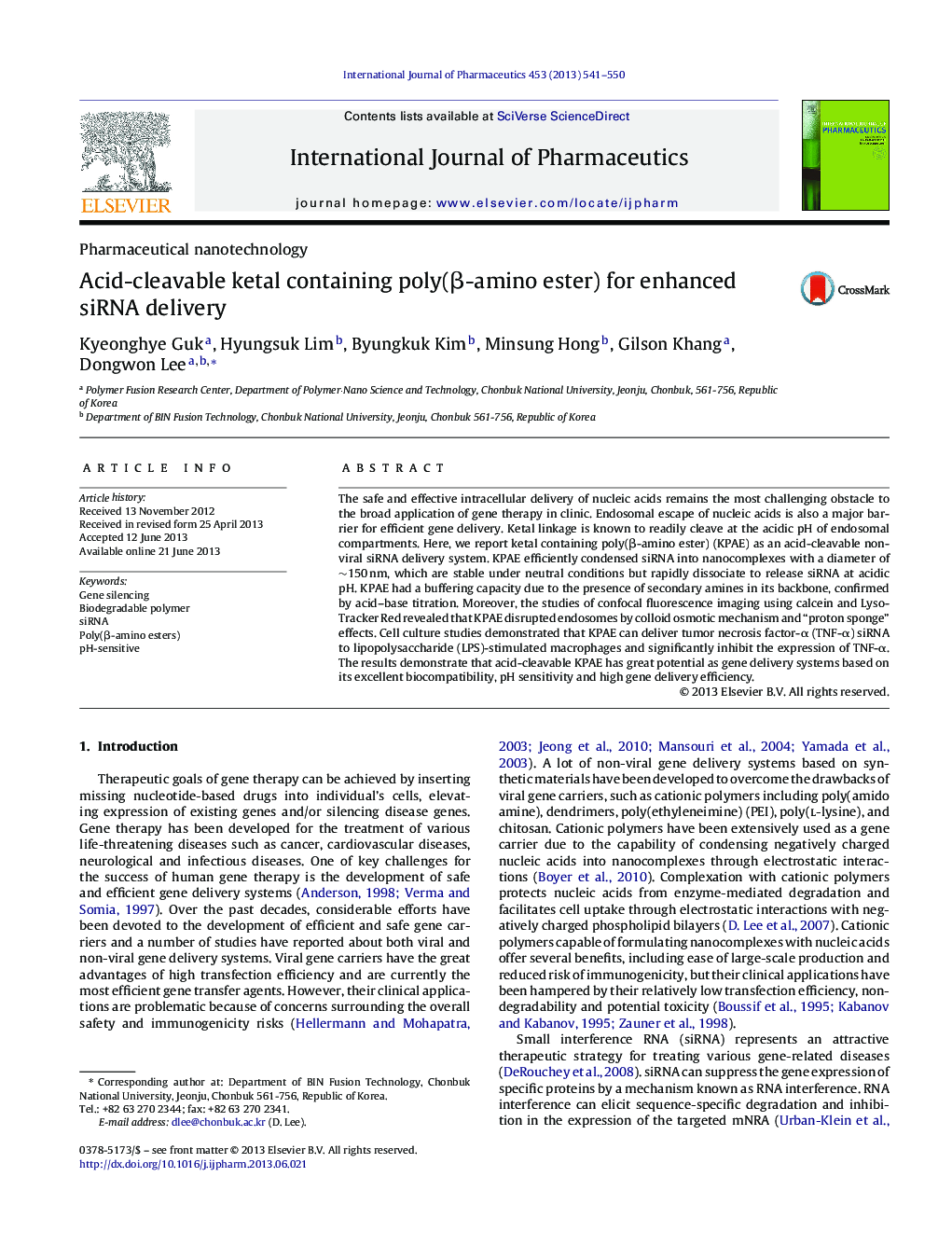| Article ID | Journal | Published Year | Pages | File Type |
|---|---|---|---|---|
| 2502206 | International Journal of Pharmaceutics | 2013 | 10 Pages |
The safe and effective intracellular delivery of nucleic acids remains the most challenging obstacle to the broad application of gene therapy in clinic. Endosomal escape of nucleic acids is also a major barrier for efficient gene delivery. Ketal linkage is known to readily cleave at the acidic pH of endosomal compartments. Here, we report ketal containing poly(β-amino ester) (KPAE) as an acid-cleavable non-viral siRNA delivery system. KPAE efficiently condensed siRNA into nanocomplexes with a diameter of ∼150 nm, which are stable under neutral conditions but rapidly dissociate to release siRNA at acidic pH. KPAE had a buffering capacity due to the presence of secondary amines in its backbone, confirmed by acid–base titration. Moreover, the studies of confocal fluorescence imaging using calcein and LysoTracker Red revealed that KPAE disrupted endosomes by colloid osmotic mechanism and “proton sponge” effects. Cell culture studies demonstrated that KPAE can deliver tumor necrosis factor-α (TNF-α) siRNA to lipopolysaccharide (LPS)-stimulated macrophages and significantly inhibit the expression of TNF-α. The results demonstrate that acid-cleavable KPAE has great potential as gene delivery systems based on its excellent biocompatibility, pH sensitivity and high gene delivery efficiency.
Graphical abstractFigure optionsDownload full-size imageDownload high-quality image (218 K)Download as PowerPoint slide
